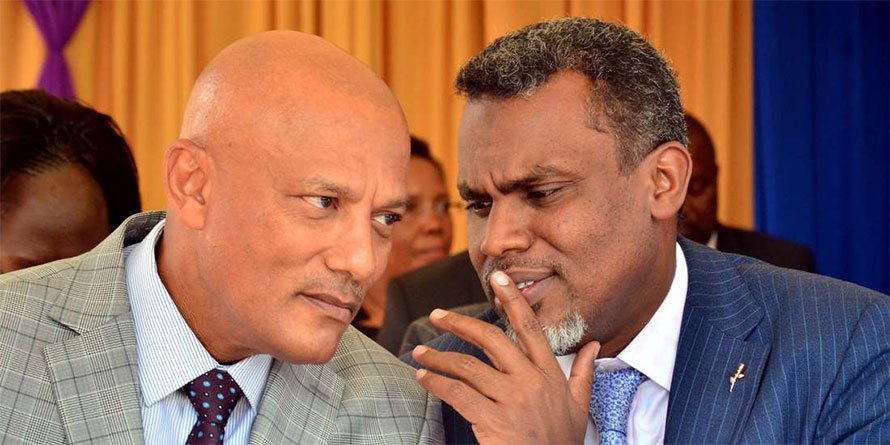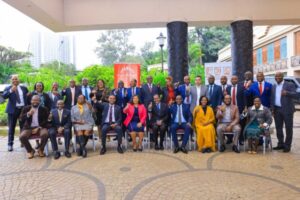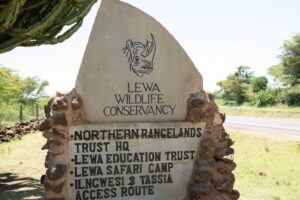
The Communications Authority of Kenya (CA) has suspended the merger between Telkom Kenya and Airtel Kenya, pending investigations by the anti-corruption watchdog into how the deal was brokered.
A separate investigation is also ongoing to establish the circumstances under which the Treasury ceded further ownership of Telkom Kenya to Orange, the French multinational which later sold its stake to private equity fund Helios.
Telkom Kenya, which is majority-owned (60 percent) by the UK-based Helios Investment Partners and 40 percent by the Kenya government, had earlier sought the communications regulator’s approval to merge their mobile, enterprise and carrier services to form a single joint venture company to be named Airtel-Telkom.
The CA, however, said yesterday it had informed the two telcos that it would not give the approval as it awaits the conclusion of the investigations by the Ethics and Anti-Corruption Agency (EACC).
“We have advised the parties that, in light of government shareholding in Telkom Kenya, approval shall only be granted once all the conditions set out by the Authority are fulfilled and the transaction is cleared by the EACC,” said the CA director in charge of communications and public affairs, Christopher Wambua, while confirming that the telecoms regulator had received a letter from EACC requesting that the deal be suspended.
In a letter dated August 14, 2019, EACC chief executive officer Twalib Mbarak asked the CA to stop the merger pending its inquiry into how the deal to merge the two telcos was brokered.
Among officials lined up for questioning by EACC include senior managers at Telkom Kenya, the Treasury, the CA and the Competition Authority of Kenya (CAK).
The anti-graft agency in the letter also said it is separately investigating whether public funds were lost when the Cabinet approved a plan in 2012 to convert the Treasury’s loans in Telkom Kenya into equity as part of a plan to recapitalise and restructure the balance sheet of the company.
In 2013, France Telecom bought an additional 11 percent stake in Telkom Kenya that was held by a Dubai-based private equity firm in a deal that tightened the French multinational’s grip on the formerly State-owned operator.
The deal meant that the French firm owned a 60 percent stake in Telkom Kenya, initially held by an entity known as Orange East Africa, a special purpose vehicle created by France Telecom and Alcazar Capital after jointly acquiring a controlling stake in the Kenyan firm in 2007.
“The commission is investigating an allegation of misappropriation of public funds in the process of recapitalisation and restructuring the balance sheet of Telkom Kenya Limited in the year 2012 and the current merger of Telkom Kenya with Airtel Kenya,” says Mr Mbarak in the letter to CA seen by the Business Daily.
“Due to public interest, the commission requests that you halt the process of merger pending the ongoing investigations.”
The CA had in mid-July said it intended to grant approval for the merger “subject to the parties fulfilling certain conditions”.
The EACC asked the CA to furnish it with the relevant documents surrounding the 2012 transaction where the government ceded control in the fixed-line monopoly to 40 percent, while France Telecom gained a controlling stake of 60 percent.
Helios, a private equity firm, bought into Telkom Kenya in 2016, saying it intended to rescue the ailing company through heavy investments and an overhaul of management.
The EACC is also investigating how the proposed merger between Telkom Kenya and Airtel Kenya was conceptualised. In the latest transaction, the EACC is understood to be investigating the likely loss of key strategic assets and taxpayer funds.
Telkom Kenya has put on sale Sh3.87 billion properties spread across the country as it seeks to raise cash to contribute to the upcoming merger.
Telkom Kenya is one of Kenya’s biggest property owners given its legacy as a State corporation. Last year, it sold its 723 masts for Sh17.16 billion to American Tower Company (ATC), according to fillings at the US Securities and Exchange Commission.
Now the anti-graft team is seeking information on who owns the firm.
“To facilitate our investigations, kindly furnish us with all the original documents bearing the information on shareholding of Telkom Kenya and the terms of ongoing merger between Telkom Kenya and Airtel Kenya,” says Mr Mbarak in the letter to CA.
Some of the documents the EACC is seeking include all licenses issued to Telkom Kenya and a letter granting the government permission to cede shareholding in Telkom Kenya in the initial entry of France Telecom.
In a separate letter summoning Telkom Kenya chief executive officer Mugo Kibati, the EACC has requested the telco to provide information regarding the earlier transaction where the State ceded its stake.
Telkom Kenya in a statement yesterday said it had furnished the EACC with all relevant documents surrounding the investigation on how the State ceded control in 2012.
“Telkom has received a request for information from the Ethics and Anti-Corruption Commission (EACC), with regard to allegations made in 2014,” said Telkom Kenya.
“Telkom has given the EACC all the information that the commission has requested and continues to cooperate with them on the matter,” the firm added.
On the earlier transaction for Telkom Kenya, the EACC has sought documents, including funding and restructuring agreements signed on December 21, 2012 between Telkom Kenya and the then Permanent Secretary at the Treasury on behalf of Government of Kenya.
Other documents include Telkom Kenya’s financial statements, board meetings, contracts and bid documents for Jamhuri Holdings, France Telecom SA, Telkom South Africa, Reliance Communication of India, Lap Green Network, Alcazar Capital Limited, MTNL (India), VSNL Tata (India), and Sudatel (Sudan) all of which were involved in the bidding.
Following Telkom Kenya’s privatisation in December 2007, France Telecom had projected that it would steer the firm to profitability in three to five years in preparation for listing on the Nairobi Securities Exchange.



















